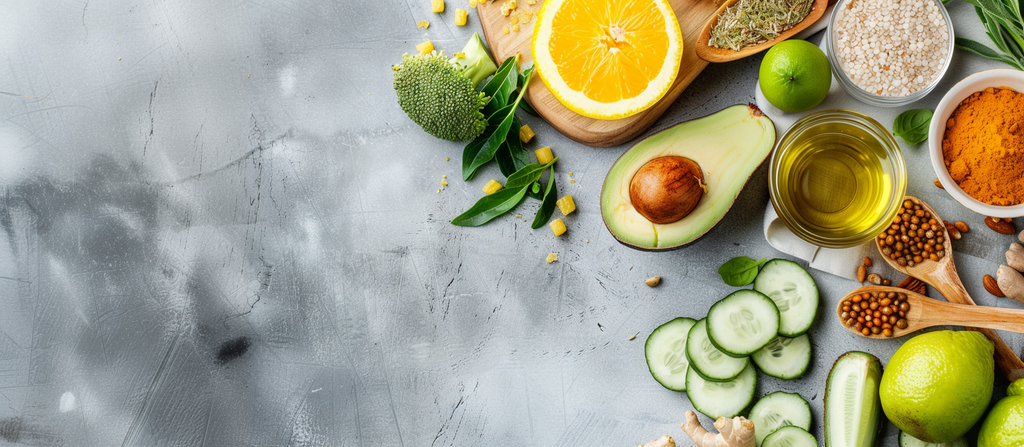Holistic skin care is about more than just the products you apply to your skin. It’s about taking care of your body as a whole, recognizing that your skin reflects your overall health.
Key Takeaways
| What is holistic skincare? | A philosophy that focuses on treating skin health from the inside out, using natural remedies, dietary changes, and lifestyle modifications. |
|---|---|
| What are the benefits of holistic skincare? | Clearer, more radiant skin, reduced inflammation, improved overall health and well-being. |
| What are some natural remedies for skin health? | Aloe vera, honey, green tea, essential oils (lavender, tea tree), apple cider vinegar. |
| What dietary habits promote healthy skin? | Eating a balanced diet rich in fruits, vegetables, whole grains, and lean protein. Staying hydrated by drinking plenty of water. |
| What lifestyle practices improve skin health? | Getting enough sleep, managing stress, exercising regularly, and limiting sun exposure. |

As a naturopath with a deep understanding of natural healing methods, I'm here to guide you on your journey to achieving clear, radiant skin through holistic practices. Forget harsh chemicals and expensive products – a natural approach that nourishes your body from within is the key to lasting results.
Personalized Skincare Routines
Creating a personalized skincare routine involves understanding your skin type, identifying your skin concerns, and choosing products that address these concerns. Here’s a step-by-step guide to help you create your own skincare routine:
-
Identify Your Skin Type: The first step in creating a skincare routine is to identify your skin type. The five main skin types are normal, dry, oily, combination, and sensitive. Your skin type is determined by how much oil your skin produces.
-
Determine Your Skin Concerns: After identifying your skin type, the next step is to determine your skin concerns. These could be acne, wrinkles, hyperpigmentation, redness, or dehydration, among others.
-
Choose the Right Products: Once you’ve identified your skin type and concerns, you can start looking for products that address these issues. For example, if you have oily skin and are concerned about acne, you might choose a cleanser with salicylic acid.
-
Establish a Routine: A basic skincare routine includes cleansing, toning, and moisturizing. You might also include additional steps like exfoliating, applying serums, or using masks, depending on your skin concerns.
-
Test and Adjust: It’s important to remember that skincare is not one-size-fits-all. What works for one person might not work for another. So, test different products and adjust your routine as needed.
- Consult a Professional: If you’re unsure about your skin type or the products you should use, consider consulting a dermatologist or a skincare professional. They can provide personalized advice based on your individual needs.
Everyone’s skin is unique, so it’s important to find a skincare routine that works for you. Here are some steps to consider:
- Cleansing: Remove dirt and excess oil from your skin.
- Toning: Balance your skin’s pH levels.
- Moisturizing: Keep your skin hydrated and healthy.
Natural Remedies for Glowing Skin
Nature's bounty offers a treasure trove of ingredients to soothe, protect, and revitalize your skin. Here are some powerful natural remedies to incorporate into your routine:
-
Aloe vera: This cooling gel is a natural anti-inflammatory and moisturizer, perfect for calming irritation and promoting healing. Apply fresh aloe vera gel directly to your skin or look for products containing it.
-
Honey: A humectant that draws moisture to the skin, honey also possesses antibacterial properties. Raw honey can be used as a natural face mask for a hydrating and nourishing boost.
-
Green tea: Rich in antioxidants, green tea helps fight free radical damage that can contribute to wrinkles and premature aging. Enjoy green tea as a beverage or use brewed green tea as a facial toner.
-
Essential oils: Certain essential oils, like lavender and tea tree, offer specific benefits for skin health. Lavender oil can soothe inflammation, while tea tree oil has natural antimicrobial properties. However, be sure to dilute essential oils properly with a carrier oil before applying them to your skin.
-
Apple cider vinegar: This natural astringent helps balance skin's pH and can be used as a gentle toner to combat acne and oily skin. Dilute apple cider vinegar with water before applying it topically.

Dietary Habits for Radiant Skin
What you eat has a profound impact on the health and appearance of your skin. Here are some dietary tips to promote a radiant complexion:
-
Eat a balanced diet: Focus on consuming plenty of fruits, vegetables, and whole grains. These foods are packed with vitamins, minerals, and antioxidants that nourish your skin from within.
-
Choose healthy fats: Include healthy fats from sources like avocados, nuts, and seeds in your diet. These fats are essential for maintaining skin's elasticity and hydration.
-
Stay hydrated: Drinking plenty of water is crucial for flushing toxins and keeping your skin plump and supple. Aim for eight glasses of water per day.
- Limit processed foods, sugar, and unhealthy fats: These can contribute to inflammation and breakouts. Opt for whole, unprocessed foods whenever possible.
Lifestyle Practices for Healthy Skin
Taking care of your overall well-being goes a long way in achieving healthy skin. Here are some key lifestyle practices to consider:
-
Get enough sleep: When you're sleep-deprived, your skin shows it. Aim for 7-8 hours of quality sleep each night.
-
Manage stress: Chronic stress can wreak havoc on your skin. Practice relaxation techniques like yoga, meditation, or deep breathing to keep stress levels in check.
-
Exercise regularly: Exercise improves circulation and brings oxygen and nutrients to your skin cells. Aim for at least 30 minutes of moderate-intensity exercise most days of the week.
- Limit sun exposure: Excessive sun exposure is a major cause of wrinkles and premature aging. Protect your skin with a broad-spectrum sunscreen of SPF 30 or higher every day, even on cloudy days.
By embracing a holistic approach that combines natural remedies, a healthy diet, and a balanced lifestyle, you can achieve the clear, radiant skin you've always desired. Remember, consistency is key.

Additional Tips
- Consult with a naturopath or dermatologist if you have any specific skin concerns.
- Patch test any new product on a small area of your skin before applying it to your entire face.
- Be gentle with your skin. Avoid harsh scrubbing or cleansing products.
Burst of Creativity: The Secrets to Glowing Skin
Imagine waking up every morning to skin that looks and feels refreshed, luminous, and utterly radiant. This isn't just a dream; it's a reality achievable through holistic skincare. Think of your skin as a canvas – the more you nurture it from within, the brighter and more vibrant your natural beauty will shine through.
Specific Examples and Scientific Backing
While natural remedies offer a powerful starting point, understanding the science behind them empowers you to make informed choices. Let's explore some examples:
-
Green Tea's Anti-aging Powerhouse: Green tea boasts a potent antioxidant called epigallocatechin gallate (EGCG) [1]. This compound helps combat free radicals, unstable molecules that damage skin cells and contribute to wrinkles. Studies have shown that EGCG may improve skin elasticity and reduce sun damage [1].
-
Honey's Multifaceted Benefits: Honey's humectant properties draw moisture to the skin, keeping it hydrated and plump. Additionally, honey possesses antibacterial properties thanks to an enzyme called glucose oxidase [2]. This enzyme produces hydrogen peroxide, a natural disinfectant that can help combat blemishes.
- The Science of Essential Oils: Essential oils, like lavender and tea tree, offer concentrated plant extracts with unique therapeutic properties. Lavender oil's calming effects are attributed to its linalool content, which has been shown to reduce inflammation [3]. Tea tree oil's antimicrobial properties come from terpinen-4-ol, a compound effective against certain bacteria that can contribute to acne [4].
Citations:
- https://www.ncbi.nlm.nih.gov/pmc/articles/PMC2855614/)
- https://www.ncbi.nlm.nih.gov/pmc/articles/PMC3609166/)
- https://pubmed.ncbi.nlm.nih.gov/30098535/)
- https://pubmed.ncbi.nlm.nih.gov/11131302/)
Remember, consulting with a naturopath or dermatologist can provide personalized guidance based on your unique skin type and concerns.
In conclusion, holistic approaches to skin health involve taking care of your body as a whole. By adopting healthy habits and using natural remedies, you can promote clear, radiant skin from the inside out. Remember, everyone’s skin is unique, so it’s important to find what works best for you. As always, consult with a healthcare professional before making any major changes to your skincare routine or diet. Happy skin care journey!








